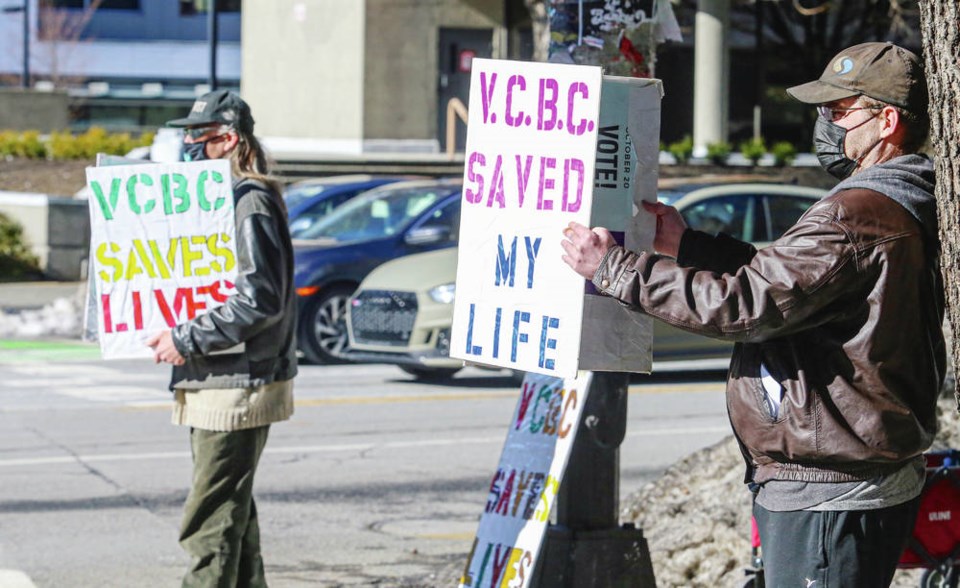Facing the threat of steep fines or jail time, the landlord of the Victoria Cannabis Buyers Club won’t renew the club’s lease at the Johnson Street storefront where it has served members dealing with medical issues for 20 years.
The landlord, Skipper Properties Ltd., received a letter this month from the province’s Community Safety Unit, which is responsible for enforcing cannabis regulations, saying it’s an offence to allow the building to be used for the sale of cannabis without a provincial licence. Violations carry a penalty of up to $50,000 in fines and up to a year in jail.
“You must immediately cease allowing your premises to be used for that purpose or you may be charged with an offence under the [Cannabis Control and Licensing Act],” the letter says.
Operating since 1996, the non-profit dispensary has been in conflict with the law for years, even after the sale of cannabis was legalized in October 2018. Provincial officers have raided the club twice since legalization, seizing about $60,000 in products.
The club can’t comply with Canada’s Cannabis Act because it sells products with higher THC content than the 10-milligram limit and at a lower cost than for legal products, said founder Ted Smith.
It’s looking for an exemption from the act so it can operate legally, serving the needs of its more than 8,000 members, some of whom consume 750 milligrams of THC daily and are on fixed incomes.
The club sells cookies containing 75 mg of THC for $2.50, while the licensed system, at the low end, sells products containing 10 mg of THC for about $4. For someone who consumes 75 mg a day, that means spending around $30 per day at a licensed dispensary, rather than a couple of dollars.
Smith describes his customers as mostly older people who are using cannabis to deal with issues such as cancer, diabetes, arthritis, chronic pain and mental-health problems. They’re worried about losing access to the products they depend on, he said. “They’re scared for their lives.”
Smith received notice that the club’s lease won’t be renewed when it expires at the end of March.
“The landlord’s being as supportive as he can be, but he’s being threatened with fines or jail. So he really has no choice but to not renew the lease, or he’s in a lot of trouble.”
Smith is hoping to find a new storefront, but if that fails, he plans to set up a tent outside city hall to continue selling products to his members, along with offering delivery and mail orders. The club is also planning daily protests Monday to Friday outside the Ministry of Health.
Since last fall, Smith and his team have been working on an application to Health Canada for an exemption to the Cannabis Act allowing them to operate legally. Now, as they face eviction, they’re rushing to complete that package, making the case that the club serves people who can’t get the help they need through the legal system, Smith said.
Both Victoria city council and Mike Farnworth, minister of public safety and solicitor general, have shown some support for an exemption for the club, but the decision is up to Health Canada, which regulates the sale of medical cannabis and prohibits storefront sales.
A spokesperson for Health Canada said in the fall the federal regulator may authorize an exemption from the Cannabis Act in “rare and exceptional circumstances” if the exemption is necessary for a medical or scientific purpose or is otherwise in the public interest. Exemption applications are assessed on a case-by-case basis.



